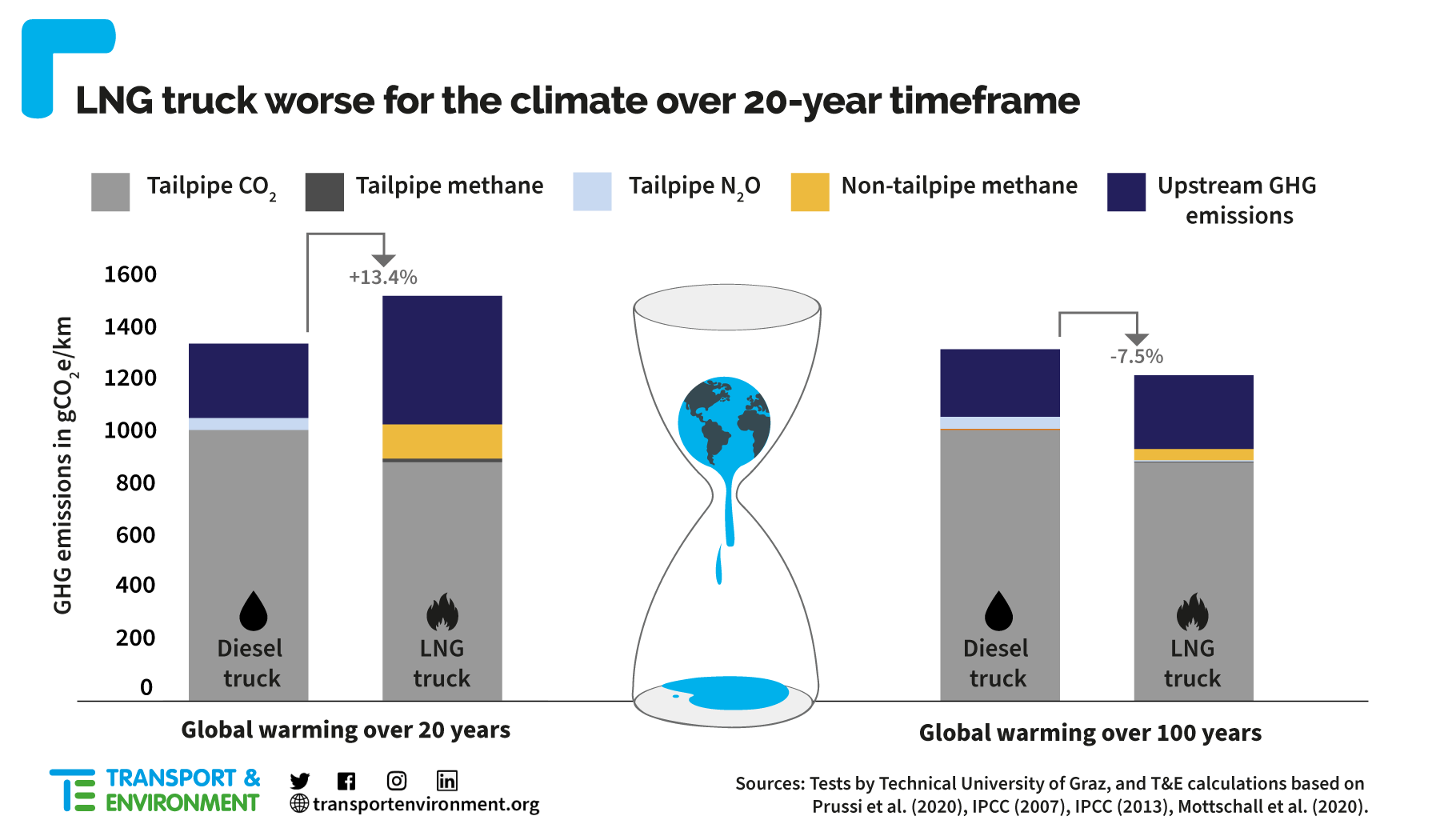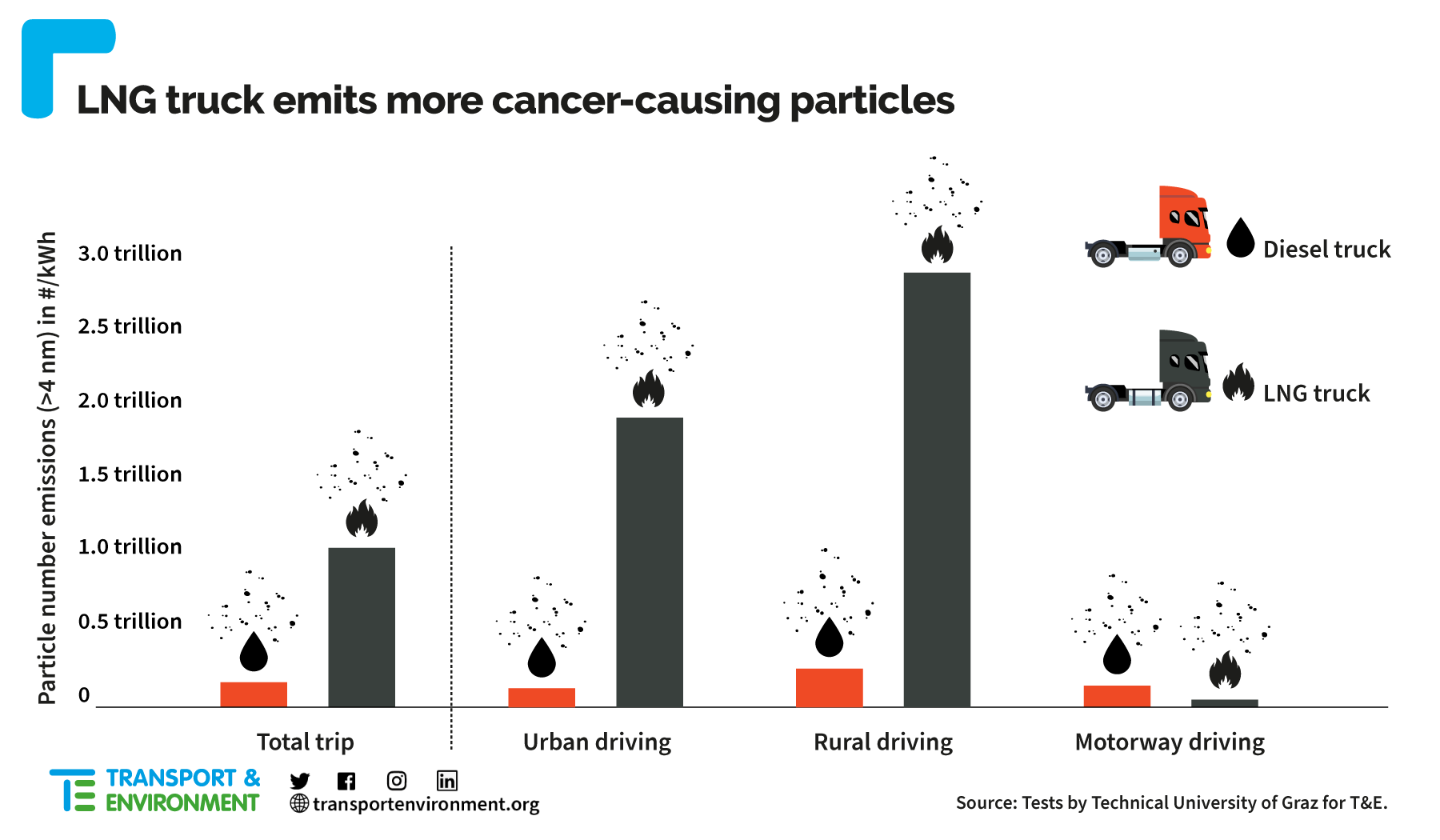The gas industry claims that gas-powered heavy-goods vehicles (HGVs) offer a green alternative to conventional diesel trucks. Truckmakers and fuel suppliers alike claim that running on both fossil-derived or renewable methane delivers meaningful greenhouse gas (GHG) and air pollutant emission reductions.
To determine whether the suggested emissions savings can be achieved in the real world, T&E commissioned the Graz University of Technology to undertake testing of a conventional diesel truck and a gas-powered LNG truck, both manufactured by IVECO. This report presents the tank-to-wheel GHG and air pollutant emissions performance of the two vehicles on real-world driving cycles as well as the expected well-to-tank and well-to-wheel GHG emissions.
In addition, the report also examines the cost, availability and scalability challenges of sustainably sourced biomethane and renewables-based synthetic methane. The report finds that gas trucks are not a viable solution to reduce emissions, neither in terms of GHGs nor air pollutants.
LNG truck fails to reduce GHG emissions
In terms of the well-to-wheel GHG performance, the tested LNG truck delivered much lower emissions savings than claimed by IVECO. Over a 100-year global warming potential (GWP), the LNG truck achieved a GHG reduction of 7.5% compared to the tested diesel truck. When looking at a 20-year GWP time frame, the LNG truck had higher emissions than the diesel truck, resulting in 13.4% higher GHGs.

These findings run contrary to the industry’s claims that gas-powered trucks constitute a viable ‘bridge technology’ which could deliver meaningful GHG reductions both in the short- and long-term. As the results of this testing project highlight, betting on LNG trucks is counterproductive.
The significantly higher global warming potential of methane over 20 years, compared to a 100-year timeframe, means that increasing the number of LNG trucks on European roads today would actally lead to an increase in global warming over the next few decades compared to the alternatives.
Renewable methane: neither scalable nor affordable
Neither sustainable biomethane nor synthetic methane produced from renewable electricity will be sufficiently scalable or affordable to be a viable solution for decarbonising trucking. Even with ex-tremely high subsidies, up to six times the retail price of fossil gas, the available biomethane feed-stock in the six biggest European countries would only meet 4% to 28% of the expected road freight energy consumption in 2050. It is therefore not credible to take into account any hypothetical GHG savings from renewable methane when quantifying the emissions performance of gas-powered trucks today or in the future.
LNG truck worsens air pollution
Gas trucks are not a credible solution for reducing air pollutant emissions and improving air quality either. Contrary to IVECO’s claims that the LNG truck can deliver large reductions in PM emissions, the testing results are showing that particle emissions from LNG trucks, both particle mass and par-ticle number, can be higher than those from diesel trucks. The tested LNG truck emitted particularly large amounts of very small particles – 37 times more than the regulated ones – which are increasingly considered as the most harmful to human health.

While overall NOx emissions were reduced compared to diesel, emissions during urban operation were close to the legal limits. This provides further evidence that gas-powered trucks are not a low-emission option and will not improve air quality in cities and urban areas, where pollution has the biggest adverse impact on human health.


